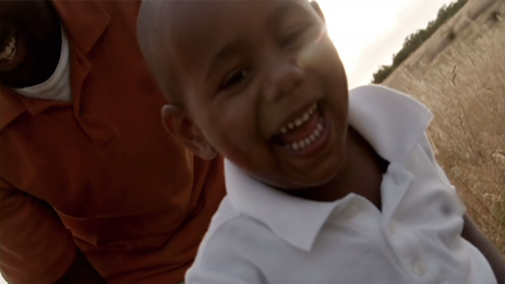Made for Life, Part 3: "Children are a gift and a blessing."
Background: We’re reading through the Viewer’s Guide that accompanies the video “Made for Life.” We’ve already looked at Part 1 (openness to life) and Part 2 (the gift of self and the gift of life). Today, in part 3, we’ll reflect on what it means that children are a “supreme gift,” how marriage is responsible stewardship of that gift, and what it means that procreation is participation in God’s creative action.

“Children are a gift and a blessing.”
While marriage includes many blessings, the gift of a child is incomparable. Children indeed are the “supreme gift” of marriage. [i] This is witnessed to both by spouses who rejoice at the birth of a son or a daughter, as Tyrone’s words above demonstrate, and by those couples who bear the sadness and pain of infertility or miscarriage. Every child is a gift because every child is a unique, irreplaceable human life. The human person “is the only creature on earth that God has wanted for its own sake.” [ii] In conceiving and giving birth to a child, husband and wife have the awesome responsibility of welcoming a new human life into the world: in fact, a person for whom the world was created, a person for whom God became man, a person called to live with God for all eternity. [iii]
Because every child is an unrepeatable gift, no one can claim a “right” to have a child. “A child is not something owed to one, but is a gift. The ‘supreme gift of marriage’ is a human person. A child may not be considered a piece of property, an idea to which an alleged ‘right to a child’ may lead.” [iv] The proper attitude of parents toward a child is joyful receptivity and awe that the Creator would entrust this new life to a mother and father. [v]
Because the child is always a gift, it would make sense that any consideration of marriage’s meaning would take children seriously into account. Unfortunately, this is not the case. Children today are often seen as a “product” to be manufactured or obtained at whatever cost, or discarded at will. [vi] Pop culture icons show off their children as if they were “trophies.” In all of these instances, the child is used as an object, not respected as a gift. The proposal to redefine marriage to include two persons of the same sex is a radical instance of “forgetting” the gift of the child. This proposal in effect subverts the most fundamental pro-child institution into a self-serving relationship defined in reference to the whims and desires of adults, not the needs of a child, the most vulnerable among us.
Marriage protects the gift that every child is. As the union of husband and wife, marriage is the natural and proper context wherein every child ought to be welcomed as a gift. Children deserve to be conceived in love and received into an environment grounded in the unity between a mother and a father. In this way, marriage is uniquely made for stewardship over life, stewardship of the gift of children. Human experience across every human society attests to the singular role of marriage in keeping together a mother and a father in their shared task of parenting, of being stewards of the gift of new life. [vii]
The truth that every child is a gift also reminds us that husband and wife are not the ultimate source of life. Instead, every child traces his or her origin directly back to God and can truly call him “my Father.” In the video, Cora and Ernie share the meaning of their son Matthew’s name, “gift of God”; truly every child is a gift of God. “God ‘willed’ man from the very beginning, and God ‘wills’ him in every act of conception and every human birth.” [viii] Every human soul is “created immediately by God—it is not ‘produced’ by the parents.” [ix] In conceiving and giving birth to new life, a husband and a wife participate in God’s creative action. [x]
This capacity to participate in bringing forth new human life—the capacity to procreate—is inscribed within the personal, bodily reality of the human person, created male and female. Only a man and a woman, as husband and wife, have the capacity to welcome the gift of the child as a unique human life who springs “from the very heart” of their marital self-giving. [xi] As the bishops have explained, “Participating in the creative work of God means participating in the self-emptying or self-giving love of God, the rendering of one’s whole being into a gift.” [xii]